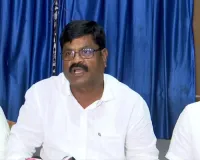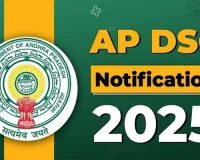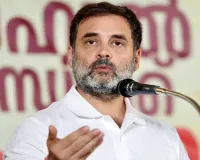AP to save Rs1,000 Cr in school education: Lokesh

Minister for IT and HRD Nara Lokesh, announced that the State exchequer would save Rs 1,000 crore over the next five years by eliminating irregularities in tenders related to the procurement of school kits, poultry, and eggs. Speaking in the Assembly, he highlighted that transparent procedures in tenders have already resulted in substantial savings, with Rs 63 crore (36 percent) saved on poultry alone, which is expected to amount to over Rs 300 crore in the coming years.
Responding to a question from Anakapalle MLA Konatha Ramakrishna regarding the recruitment of teachers, curriculum changes, and school infrastructure, Lokesh stated that savings of 8 to 9 percent—approximately Rs 70 crore—would be achieved in the procurement of school kits.
Additionally, a reduction of 10 to 12 percent in the cost of eggs has been recorded. Emphasizing quality assurance, he noted that although there could have been higher savings on school uniforms, the government chose to provide better-quality fabric with two-sided printing, ensuring that the uniforms remain usable for an additional year.
On the issue of teacher recruitment, Lokesh revealed that a notification for filling 16,347 vacancies would be issued in March. He also directed officials to take into account all legal cases filed against DSC since 1994 before finalizing the recruitment process.
Furthermore, the government plans to introduce the Teacher Transfer Act in the next cabinet meeting to streamline transfers, eliminating the need for teachers to seek external assistance for relocation. Criticizing the decisions of the previous government, Lokesh pointed out that former Chief Minister Jagan Mohan Reddy had implemented policies such as IB, CBSE, and TOEFL without proper planning.
He alleged that Rs 5 crore was spent merely on obtaining a report for IB schools, which were never established, while the TOEFL initiative was abandoned. He further argued that the CBSE curriculum had been introduced without adequate preparation, as mock tests revealed that 90 percent of students failed.
Expressing concerns over the potential social impact, he warned that if female students failed in large numbers, it could lead to increased dropout rates and early marriages. He proposed a phased transition, suggesting that CBSE be implemented only after three years, allowing sufficient time to train teachers, prepare parents, and equip students for the change. Highlighting the government’s vision for strengthening the public education system, Lokesh underscored the importance of the "one class–one teacher" model, aiming to expand the number of primary schools operating under this system from the current 1,400 to 10,000.
He also announced plans to establish a model primary school in every panchayat. Incorporating gender equality into the curriculum is another priority, Lokesh stated. Changes have already been made in textbooks for Classes 1 and 2, depicting men and women performing household tasks equally to instill a sense of gender parity from an early age.
The government is also ensuring that both English and Telugu are adequately represented in textbooks, acknowledging the importance of linguistic balance. Addressing concerns over the aided education system, he acknowledged its complexities and assured that a special policy would be formulated to provide a permanent solution.
Lokesh said that over the next four years, the government would focus on improving learning outcomes, working with determination to establish a robust "AP Model" education system with the cooperation of all stakeholders.









